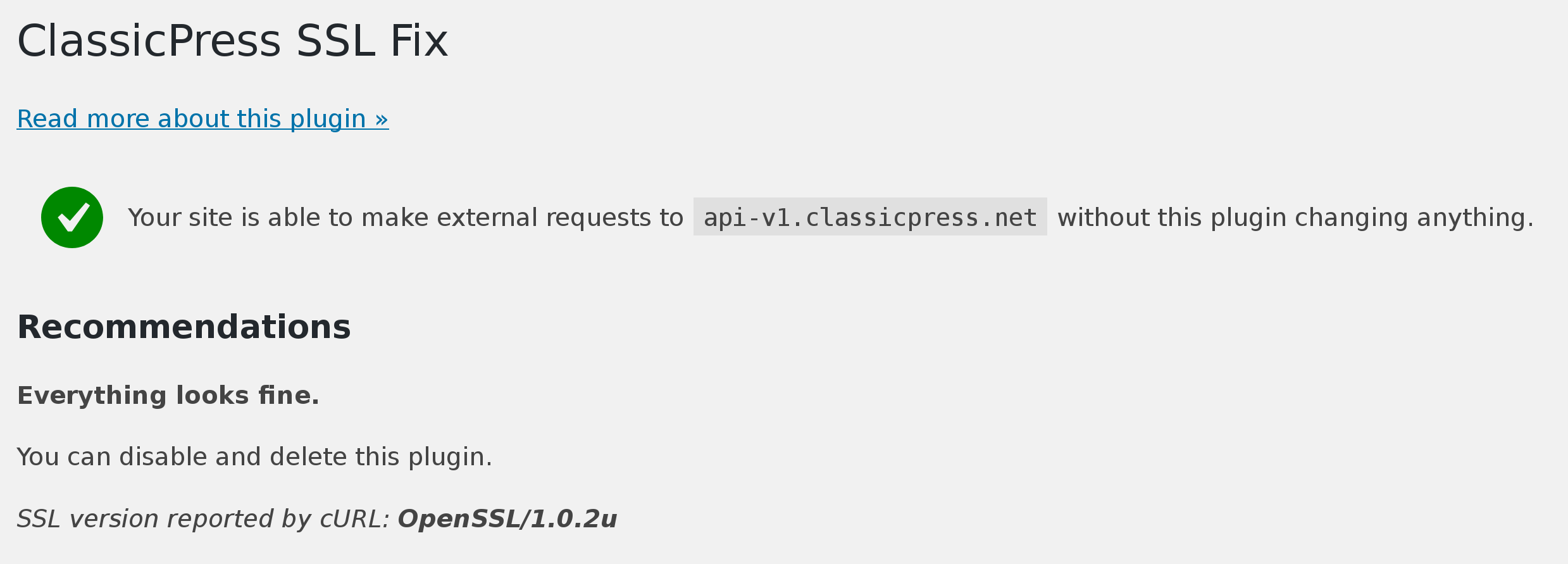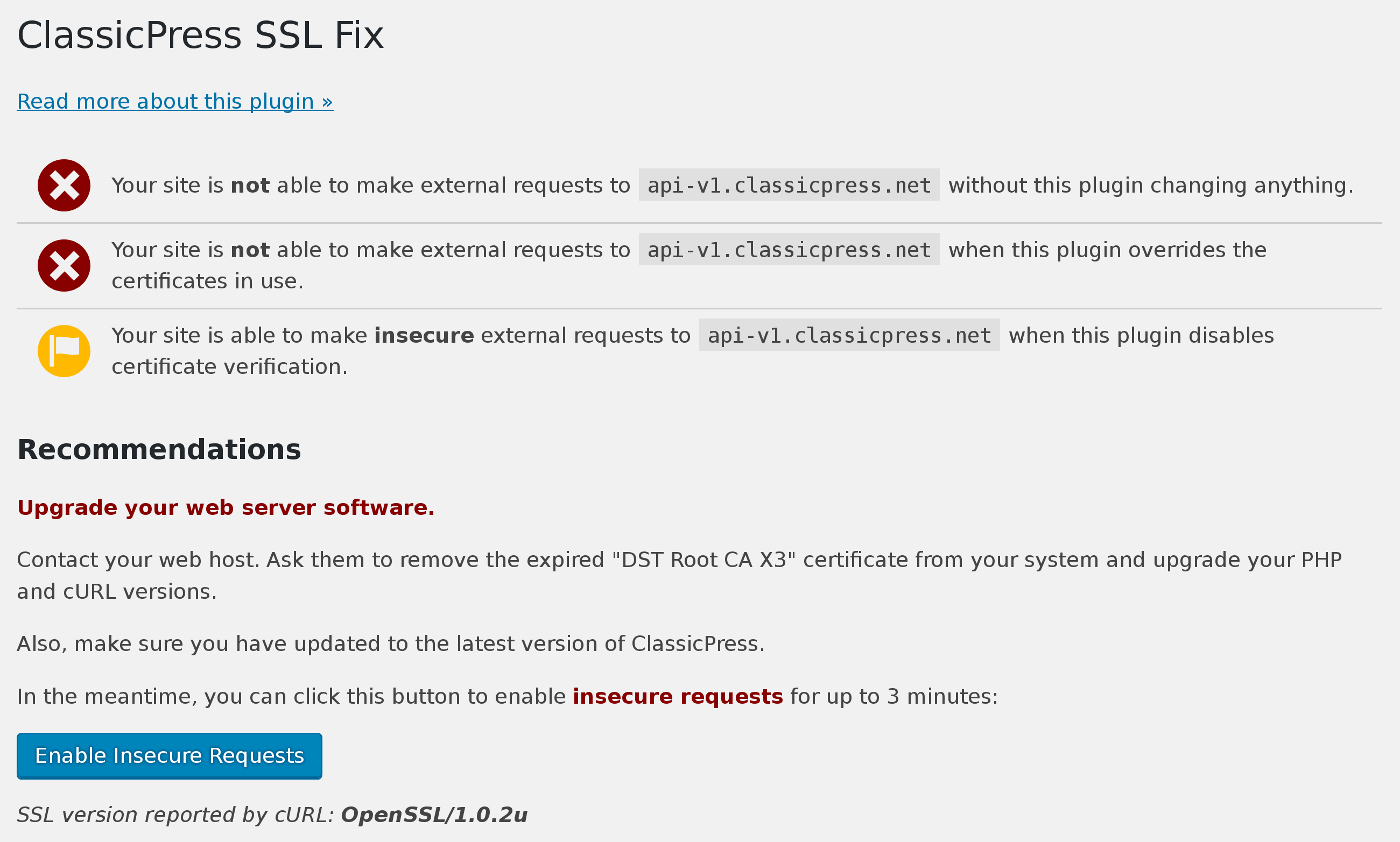ClassicPress SSL Fix
This plugin provides a way to work around the issue "cURL error 60: SSL certificate problem: certificate has expired" in ClassicPress and WordPress in the most secure way possible, and also provides an admin page to determine whether the issue exists on your site and recommend how to fix it.
This issue is occurring because one of the SSL certificates used by a large portion of the Internet expired in September 2021. Its replacement is already available, but many web servers (and other devices) are running an older version of a key piece of software that doesn't know how to use the new certificate properly.
Installation
Download the latest version of this plugin's code from GitHub and install it in your site's admin dashboard like any other plugin ("Plugins > Add New" in the dashboard menu, then click the button to "Upload Plugin").
Activate the plugin, then go to "Tools > CP SSL Fix" in the dashboard menu.
Plugin functions
There are three different modes this plugin can operate in, depending on the web server configuration.
Do nothing
If your site is able to perform external requests, then this plugin doesn't need to do anything and it will simply report that condition:
Automatically use a corrected certificate bundle
Otherwise, this plugin will attempt to tell your ClassicPress/WordPress installation not to use the expired certificate that causes this problem. If the expired certificate is not present in your web server's system certificate bundle (part of the configuration set by your web host) then this is all that is needed to get things working again temporarily.
If this is an issue that a ClassicPress/WordPress upgrade will be able to fix on your site, then this plugin can take care of it until the new version comes out:
This plugin will also be able to help these sites to get the new version of ClassicPress/WordPress applied successfully when it comes out.
When possible (depending on the server configuration), this is a much more secure alternative than disabling all certificate verification.
Provide the option to switch to insecure requests for a few minutes
If the expired certificate is also present in your web server's system certificate bundle then the above method will not work. Your web server will need to be upgraded (to a more recent version of PHP and/or the cURL extension for PHP) or reconfigured (to remove the expired certificate from your system's certificate store). Until that is done, the only other option is to disable certificate verification entirely for external requests. This is dangerous, so the plugin provides a button to enable this mode for 3 minutes to allow you to complete critical maintenance tasks like upgrades.
Again, the real fix is to upgrade/reconfigure the webserver, but this can help get upgrades and other tasks unblocked in the meantime.
More technical details
This issue occurs when:
- your site is using the PHP cURL extension to make requests to external servers (this by itself is normal and correct)
- and the version of OpenSSL that is bundled with cURL is 1.0.2 or older
- and an expired certificate known as "DST Root CA X3" is present in your web server's system certificate bundle and/or the certificate bundle used by ClassicPress/WordPress. (cURL will always use the certificates in the system certificate bundle even though ClassicPress/WordPress specify their own certificate bundle, so the expired certificate needs to be removed from both places.)
When all of these conditions are met, your site will be unable to connect to external servers that use SSL certificates issued by Let's Encrypt, which is a large portion of the Internet, including api-v1.classicpress.net.
The best way to fix this issue is to get your web hosting provider to update the software behind your PHP installation, and also remove the expired "DST Root CA X3" certificate from your web server.
ClassicPress and WordPress will also be removing this certificate on their end, but this is not always enough to fix the issue by itself.
In the meantime, this plugin can help get your site able to make requests to external servers again.


